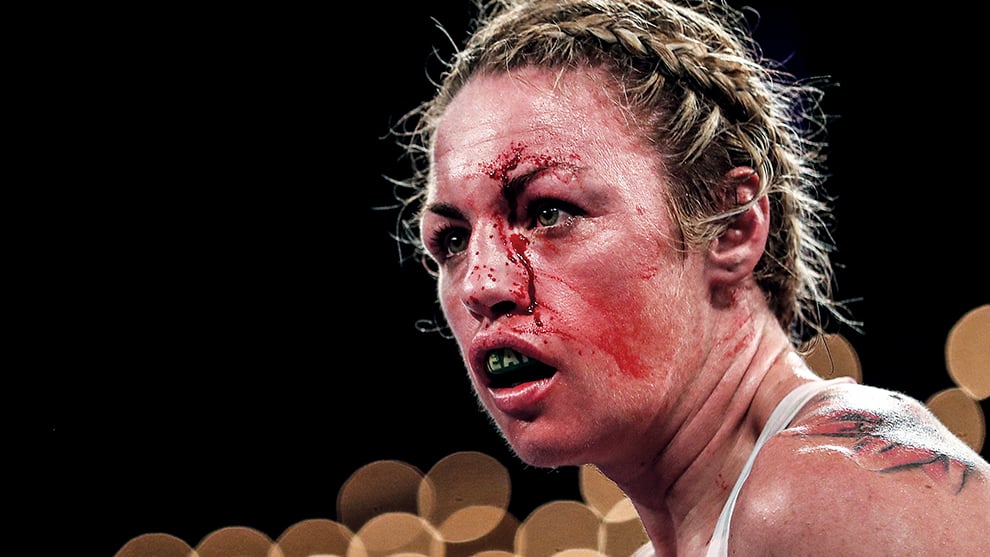By Mark Baldwin
MAYBE I’ve been in denial all these years. Or have I just ignored the obvious and carried on regardless for my own convenience. I’ve never once seriously thought of questioning why I love boxing so much. There have been fleeting thoughts of trying to justify why I watch it. Why I write about it. I know what the sport can do. I always have.
I’m old enough to remember the likes of Bradley Stone, Michael Watson, Gerald McClellan, Johnny Owen, Steve Watt and James Murray. I could go on. Victims of the sport, in different ways. I’ve never forgotten them. How could anyone forget what they did for our entertainment? Entertainment? You certainly can’t forget the price they and many others paid.
I would love to interview the likes of Donald Curry, Thomas Hearns, and a plethora of other fighters from that truly incredible era. But I can’t. I just can’t. Curry, Hearns, and many more have been left damaged by the sport.
I do see the sport differently now. I shudder when I watch Derek Chisora. I can’t enjoy his last ride. People cheer for more. But do they really want more? Are they really oblivious to what potentially lies ahead? Is it more accurate to say that the baying mob who demand blood and guts for their entertainment don’t really care what lies ahead? They would have long switched off their emotional investment if and when news breaks that all the doomsday scribes were proved correct. By then, another round of fighters will have been served up for their entertainment.
I have read ‘Damage’ by Tris Dixon, an incredibly hard deep delve into the effects of Chronic Traumatic Encephalopathy (CTE) within the sport. A book that anyone involved in the sport should be made to read. Dixon beyond educates with his carefully chosen words.
In truth, I didn’t need to read it. I already knew what Dixon would write. What he would say. How could you seriously not know what being punched repeatedly in the head does to someone. But maybe I’ve subconsciously blocked the dangers away over the last few years. It was probably easier on my conscience that way. Dixon reminded me of many things. But one fighter said some words that I will never forget.
I have avoided touching this delicate subject before. But Heather Hardy was different. I wanted to speak to her. I wanted to tell her story. I wanted to know her story. Hardy is another victim of the sport. Twenty-seven times, she has fought as a professional boxer. She has also absorbed blows and kicks in MMA and kickboxing. At forty-two, she is now retired. But her biggest fight is still to come. The biggest fight of her life. Probably one that she has no chance of winning.
“Do I regret it? No,” Hardy told me when we connected over Zoom. “I don’t regret anything in my life. Boxing has made me who I am. I love my career. I love everything I did. I am just at a crossroads. My whole life is over, and I am hurt. Just think about that. I gave boxing everything.”

NEW YORK, NEW YORK – FEBRUARY 23: Taynna Cardoso of Brazil (black trunks) trades punches with Heather Hardy (white trunks) during their Super Featherweights bout at BoxingInsider Fight Night at Sony Hall on February 23, 2023 in New York City. Hardy won by majority decision. (Photo by Sarah Stier/Getty Images)
Hardy is right. She did give boxing everything. Literally. Hardy cried during our 20-odd minutes on Zoom. She cried a lot if truth be told. Her retirement is one of reluctance. A compulsory removal from her sport. You sense Heather Hardy would fight forever if she could. Hardy didn’t want to retire. She couldn’t afford to retire. There was even a fight without gloves lined up. The brutality of the bareknuckle world could have been her next step. I shudder again when I think of what that could have done to her.
“I couldn’t have afforded to retire sooner,” Hardy said as the tears flowed once more. “Do you think I wanted to fight Amanda Serrano twice? No way. People were saying you are 42, of course, you have to retire, you have got brain damage. I had a bareknuckle world title fight on the table for $50,000, money that I needed.”
Every single word Hardy uttered had meaning. Had consequences. Nothing of what I said had any of those things in comparison. Every question. Every word felt clumsy and awkward. Intrusive even. Then my thoughts flickered to what Hardy must have felt having to tell her sad story once more.
“When you have a concussion, that piece of your brain dies, and I can’t afford to have any more of the dead stuff,” Hardy added.
“They have said as long as I don’t get hit in the head anymore, it won’t get any worse. But they don’t know how much of my brain has been lost. They can’t tell that until you are dead.” An already difficult interview got even more uncomfortable. Thoughts turned to what future Hardy has ahead of her.
“I gave everything, and nobody is now helping me,” Hardy said, clearly thinking the exact same thing.
“I love boxing, and I truly believe that boxing saves lives. I have seen people that I love die in the ring, but I have seen how many lives it saves, myself included. I don’t regret anything. I wouldn’t do anything different.”
To retain a love for the sport that took away so much is quite extraordinary. Shocking even in many ways. A picture of Patrick Day, a fighter who paid the ultimate price for his trade not so long ago, is never far away.
“I was feeling nauseous. My weight dropped to 115lbs. I was going days without sleeping. I was kinda just melting away. The hardest thing for me was to admit that I was too weak to fight.” Hardy says of why she had to let go after that second fight with Amanda Serrano last year. The effects of what Serrano did to her lingered too long. They never left. They might never leave.
‘The risk we take is the price we have to pay for success, and we budget for it.’ Barry McGuigan once said. But I wonder if budget really means denial for most of us. It certainly is for the paying punters who boo far too easily when they see a bit of the sweet science. Most want something else for their money. Something far more brutal. A little highlight reel of chaos that can be played back multiple times on social media. Bragging to their mates that they were there in person to witness some poor soul getting battered into submission.
They say make your money and get out. But how can you get out when you are not making enough money to get out. Trapped on a vicious merry-go-round with no way off, Heather Hardy has been in that playground. She didn’t leave of her own accord. It threw her out when it had taken everything. A heavy price for entry. A price that just kept going up. It went well above the call of duty.
Hardy needs our help. The sport should give a little back. But it won’t. It never does. But maybe that time had already passed. If the sport had paid her a more worthwhile wage, Hardy might have walked away with enough money to live comfortably in retirement. And with her health.
“I wished they would have paid me more money so that when I was unbeaten and a world champion, so I didn’t have to go over to MMA. Every time I went in there, I was fighting for my life. I was over my head in debt, trying to keep my daughter in school. I was screaming for equal pay, and nobody listened. Now look at me. I gave my whole body to boxing. I can’t even drive because I can’t see.”
Hardy is now training fighters. She is ultra-careful with those fighters in her care. Sparring is controlled. It’s limited. She knows a big percentage of the damage is done in the gym. Hardy worries that more fighters will be facing the same problems as her in the coming years.
“Women’s boxing is still in its infancy for sure, but it is at its most dangerous now because the girls are in these hard, competitive fights, risking their lives, but they are not taken care of financially.”
Hardy has tough times ahead of her. She knows that better than anyone. But Hardy will fight on. A born fighter in every way imaginable. We forget Hardy was once a world champion. She reached the pinnacle of her sport. But in many ways, that sport let her down. And badly. She has no pension for her efforts. Just a story of broken promises and any hope of riches long since extinguished.
I do look at the sport differently now. I’m at an age where I have to. My heroes from the end of the last millennium have moved on. In many cases, it didn’t end well. Those that are still with us, what kind of life are they now living I often think. Shattered dreams. Broken bodies. The hard-earned money is long gone. The hangers-on didn’t hang on. They went with the money. How many still remember their primes? Do those fighters even remember their primes?

Heather Hardy teaches Meg Lazar how to box
Those fighters from that generation were viewed from the comfort of my sofa. Stumbling and fumbling into the boxing media world changes plenty. Now I know some of these proud brave warriors on a personal level. An emotional investment that has totally changed my perspective. I still love the sport. But I know hypocrisy goes hand-in-hand with that love.
I was ringside in Barnsley this month enjoying what Stevie McKenna and Joe Laws served up. A brutal war that you didn’t dare take your eyes off. But the next time I watch either of those fighters, I will now think of what lies ahead. The body can only take so much. My conscience also.
The story of Heather Hardy should be told. For her, it’s too late. But lessons can be learned from her plight. Hopefully, empathy and help now come her way. But her story should be a warning to every single fighter out there. Get out while you can







